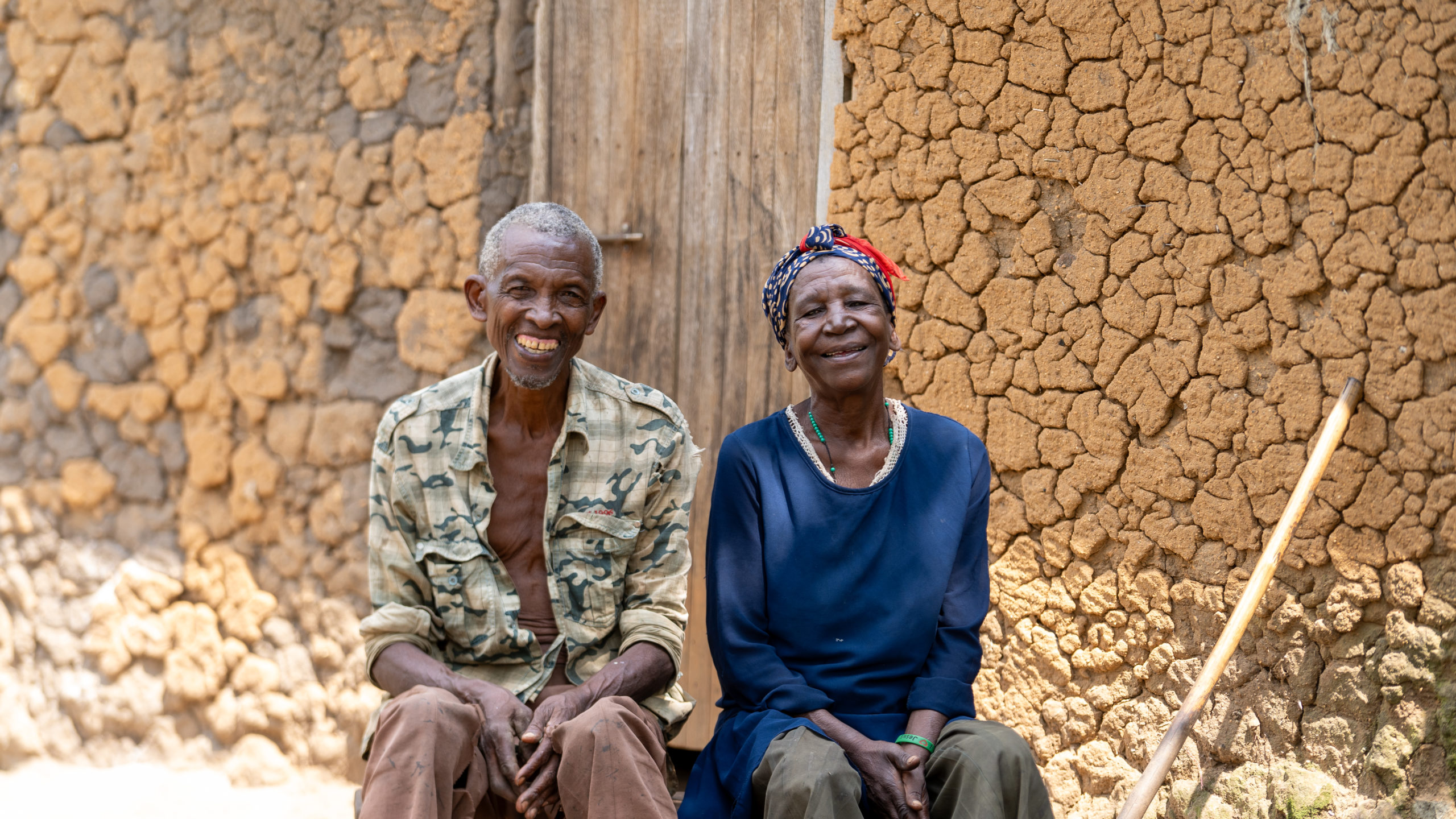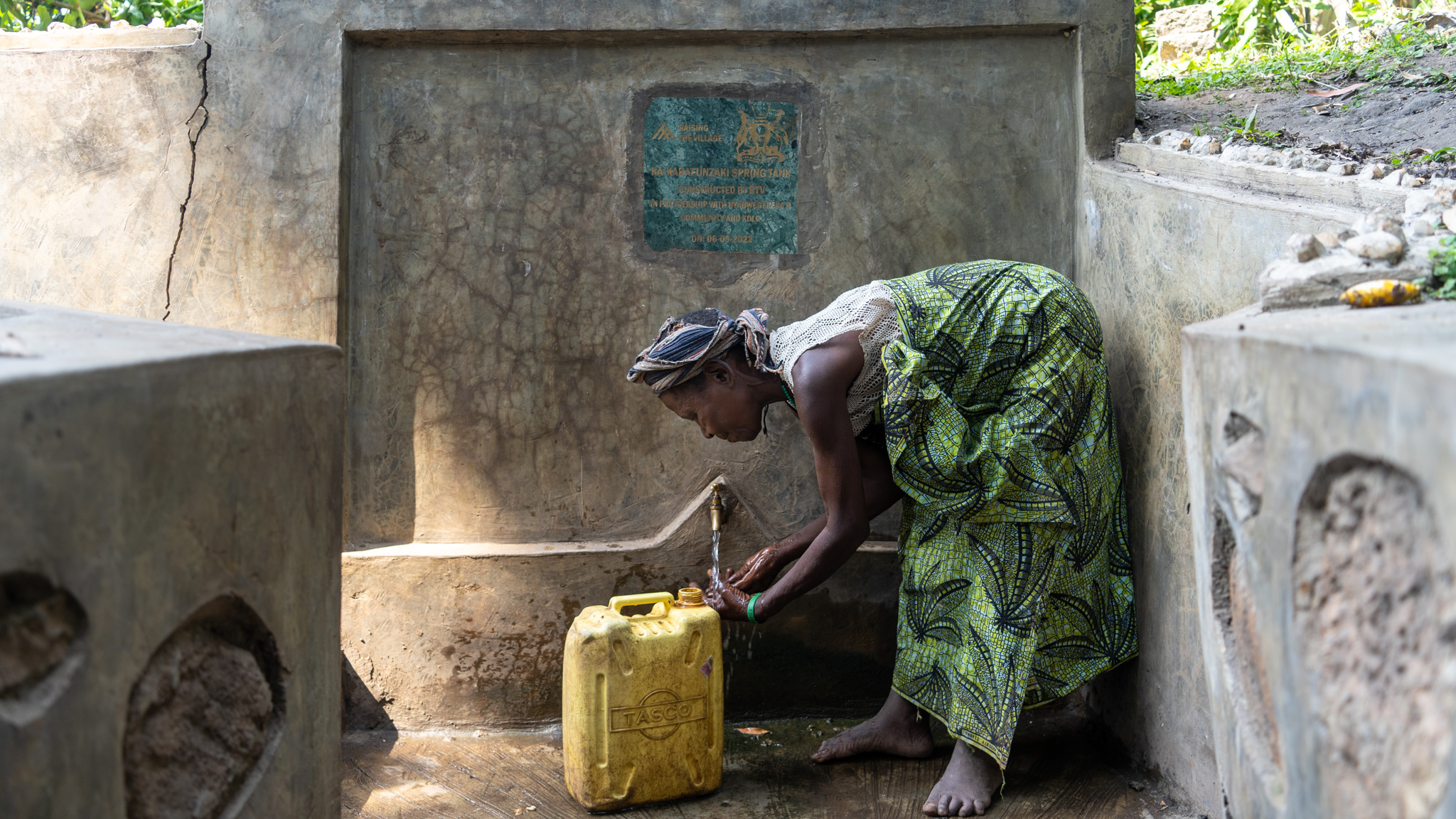Addressing Barriers to Development

67-year-old Fred lives with his wife, Beatrice, in a last-mile village in Kagadi, located in Midwest Uganda. When their children moved to the city for better employment opportunities some years ago, Fred and Beatrice couldn’t be prouder as parents. As lifelong farmers, they continued farming and going about their daily lives, except for one major challenge – needing to fetch drinking water on their own.
Until last year, everyone in Fred’s village collected water from a well several kilometres away. The well was unprotected from weather elements and animals, resulting in contamination and frequent waterborne diseases. “We used to fetch water from a deep well where the water was dirty and unsafe for our health. The only other option was very far, and it would take a lot of time just to get there,” Fred says.
Fred’s community partnered with Raising The Village (RTV) in 2022 under the “From Last Mile Into Possibilities” (FLIP) project with support from the Government of Canada through Global Affairs Canada (GAC). The community came together to deliberate on their development needs and address barriers to improving their quality of life. Easy access to clean drinking water was identified as one of the barriers to health and well-being and investing more time in income-generating activities. Fred offered a piece of his land to construct a water source for the whole community. “Water has been one of our biggest challenges, so when we got the opportunity, I was more than happy to provide the space for the well,” he says.

While the well was being constructed, Fred and his wife, Beatrice, in addition to other households in the community, participated in RTV’s training on Good Agronomic Practices (GAP) with specific awareness sessions on good hygiene and sanitation practices. “We learnt to use dish racks to dry our dishes and keep them clean, the importance of cleaning and maintaining our toilets and installed a tippy tap for handwashing,” says Beatrice. While they implemented modern farming techniques to their cassava, beans, maize and Irish potato crops and realized bigger harvests, the water source constructed in August 2022 brought down instances of diseases and improved the general quality of life.
The whole community now uses the well, including the village school. The water source is now within walking distance for most community members and is no longer a cause for worry. “We are no longer worried about getting sick,” remarks Fred proudly as he tends to his cassava plantation.
Be part of our journey. Support last-mile communities by supporting Raising The Village.
Let’s Stay Connected

